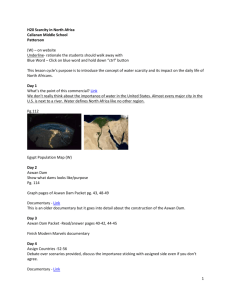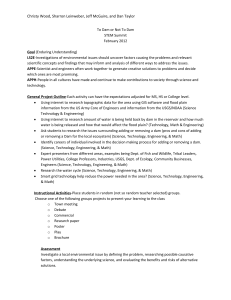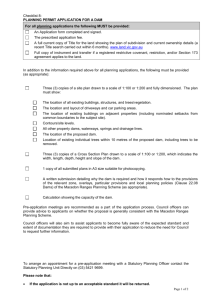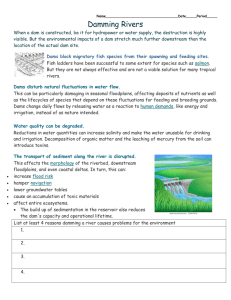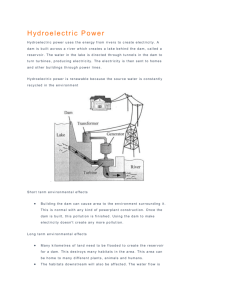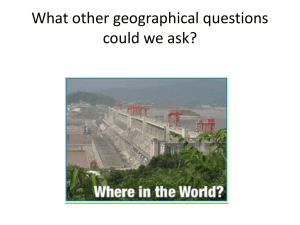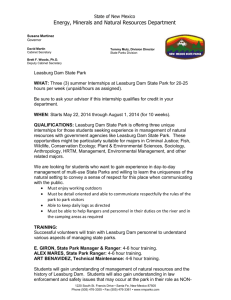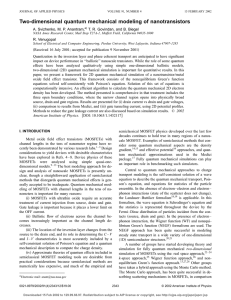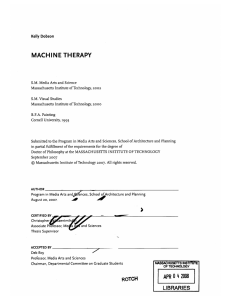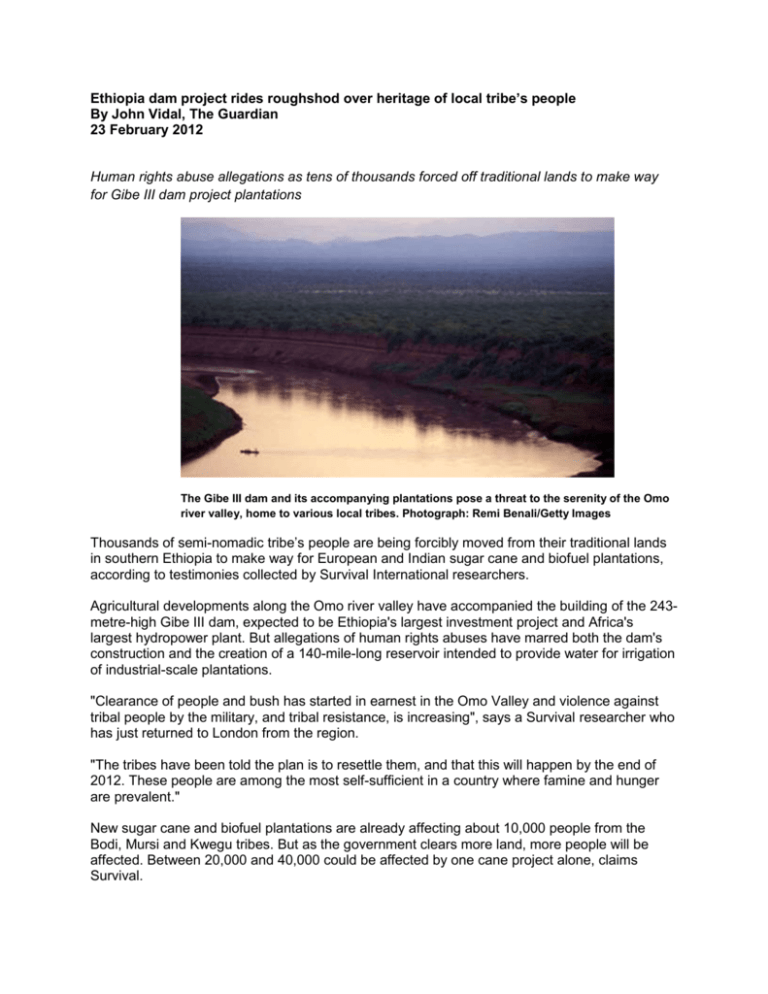
Ethiopia dam project rides roughshod over heritage of local tribe’s people
By John Vidal, The Guardian
23 February 2012
Human rights abuse allegations as tens of thousands forced off traditional lands to make way
for Gibe III dam project plantations
The Gibe III dam and its accompanying plantations pose a threat to the serenity of the Omo
river valley, home to various local tribes. Photograph: Remi Benali/Getty Images
Thousands of semi-nomadic tribe’s people are being forcibly moved from their traditional lands
in southern Ethiopia to make way for European and Indian sugar cane and biofuel plantations,
according to testimonies collected by Survival International researchers.
Agricultural developments along the Omo river valley have accompanied the building of the 243metre-high Gibe III dam, expected to be Ethiopia's largest investment project and Africa's
largest hydropower plant. But allegations of human rights abuses have marred both the dam's
construction and the creation of a 140-mile-long reservoir intended to provide water for irrigation
of industrial-scale plantations.
"Clearance of people and bush has started in earnest in the Omo Valley and violence against
tribal people by the military, and tribal resistance, is increasing", says a Survival researcher who
has just returned to London from the region.
"The tribes have been told the plan is to resettle them, and that this will happen by the end of
2012. These people are among the most self-sufficient in a country where famine and hunger
are prevalent."
New sugar cane and biofuel plantations are already affecting about 10,000 people from the
Bodi, Mursi and Kwegu tribes. But as the government clears more land, more people will be
affected. Between 20,000 and 40,000 could be affected by one cane project alone, claims
Survival.
"The plantations and resettlement of people [into new villages] will destroy their livelihoods and
ability to fend for themselves," said a spokesman. "They will almost certainly end up languishing
in the villages or 'camps', relying on donor aid [and] having lost all sense of identity and selfworth, as has happened with other tribes forcibly resettled in many other countries."
The Omo tribes, who are among the most diverse in the world, have until now depended on the
annual, three-month long flood of the Omo river, which flows from southern Ethiopia into Lake
Turkana in northern Kenya, depositing fertile silt and allowing them to plant sorghum, maize and
other crops. But without land for cultivation or grazing, the tribes will be destitute and foodless,
say international observers.
"The government came to take the land for itself for the sugar cane plantations," said one man
in a testimony given to Survival. "It never came to ask us. It came, took our land, and told us it
wants to move all the people in the Omo Valley to stay in one place like a camp. It took my land.
Now it beats us."
A second man said: "The government says cattle and people have to move from the Omo valley
to where there are no grass and no crops. We and the cattle will die together. We are not rich
people, we are pastoralists."
"There are many machines clearing the bush and the road. The government is coming to clear
our houses and throw our sorghum in the river. Now we live in the bush because all the land
has been cleared," said a third.
The construction of large dams has a history of insensitive relocations of people and
environmental problems. More than 400,000 people have been resettled as a direct result of
dam construction in Africa. But the construction of Gibe III could eventually affect more than 1.5
million people, according to watchdog group International Rivers.
Some of the greatest hydrological effects could be seen near Lake Turkana, into which the river
Omo flows. When the dam is complete and the reservoir is full, possibly in 2015, the lake could
shrink to one third of its present size, jeopardizing the livelihoods of up to 300,000 people.
The Ethiopian government in London did not respond to the allegations this week, but late last
year it strongly denied accusations of human rights abuses in the valley, saying: "The
government is fully committed to rural development to benefit the people and it is equally
committed to the rights of all the nations, nationalities and peoples in the country, including
those in the Omo river basin. The reality on the ground in the Omo Valley shows a totally
different picture to that painted by Survival International. Following consultations, local people
have confirmed agreement to the plantation projects, and to the proposed resettlement; the
projects, designed for everybody's benefit and well-being, are progressing smoothly."
A spokesman for International Rivers said: "The dwindling of resources caused by the dam
would increase local conflicts between ethnic groups. Firearms are already omnipresent among
the region's communities. But the dam is just one factor in a perfect storm rapidly descending
on the Lower Omo Valley. The government of Ethiopia is exploring the area for oil and minerals
and planning large-scale agricultural and biofuel schemes, which could further fuel conflicts over
traditional land and water resources."
©2012 Guardian News and Media Limited or its affiliated companies. All rights reserved.


